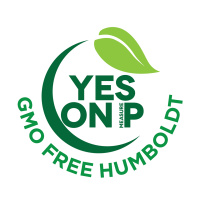
Michelle Ashworth Student at College of the Redwoods asks Yes on P (Wilhelm Schaser, Campaign Spokesperson), No on P (Dr. Rollin Richmond)…
The Dangers
What are the dangers associated with an approval for the Yes on P to the No on P side.
What are the dangers associated with denying the Yes on P to the Yes on P side.
Both candidates: What do you think is the most important issue involved in Non-GMO products/GMO products?
— Michelle Ashworth Student at College of the Redwoods
Responses

No on P (Dr. Rollin Richmond)
In response to Ms. Ashworth and thanks for your question.
If Measure P is adopted, we will not be able to vaccinate our pets against rabies since the vaccine is produced by genetic modification of a virus. Think about what the consequences of Measure P would be for one of our most important local crops, marijuana. Are we going to test each version of pot to see if it is genetically modified? While I am confident that we do not know which marijuana varieties may have been genetically modified, would Measure P require us to eliminate all marijuana grows in our region. We should legalize marijuana and test all pot for its effects on our brains. Furthermore Measure P includes no funds for the testing of potential GMOs. These tests are expensive and many are required to be somewhat certain that an organism is genetically modified. Where would this money come from?
The most important issue for those concerned about GMOs.
There is much excellent evidence that GM crops benefit our species. The use of these plants has lowered the price of food and allowed farmers to use less pesticide. GM crops have also increased the production of corn, soy and cotton by nearly 30% that is highly significant for many people throughout the world. There are now more than 7 billion human beings worldwide, and by 2050, it is predicted that our numbers will exceed 9 billion. GM crops will allow us to produce food to feed all these people without having to eliminate much of the worlds existing natural areas. In addition, climate change is already endangering much of the world’s agricultural land. So if you really care about our environment, do not support Measure P. We are going to need GM crops to feed our grandchildren in the future.

Yes on P (Wilhelm Schaser, Campaign Spokesperson)
Michelle,
At its heart, Measure P is about local control versus corporate control of our local food system. It’s about supporting our hardworking farmers who have been developing a sustainable agricultural system here on the North Coast for over 100 years. Measure P is about protecting our soil, our water and our air from the toxic herbicides and insecticides that are the mainstay of corporate agriculture. Measure P is about maintaining the quality of life we have enjoyed for generations and maintaining it for the future generations I see in the arms of proud parents at Farmers Markets every week.
Let me be as frank as possible, GMO agriculture is based on poison usage. The crops that have been developed over the past 30 plus years do not do things like resist drought or increase nutritional value for the consumer. GMO crops are about weed and insect control. As target organisms adapt (and it’s a law of nature that they always will), more and stronger herbicides are required. It’s a great business model for agrochemical giants which provide both the seed and the poison.
And by the way the idea that you will not be able to vaccinate your dog is just plain ridiculous!
